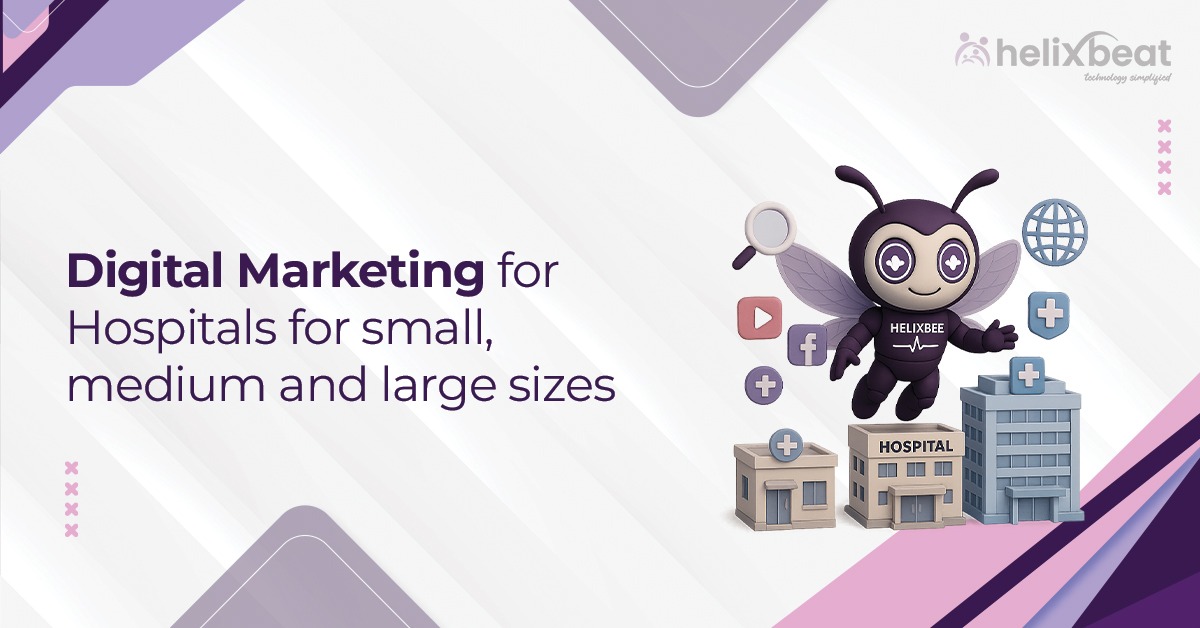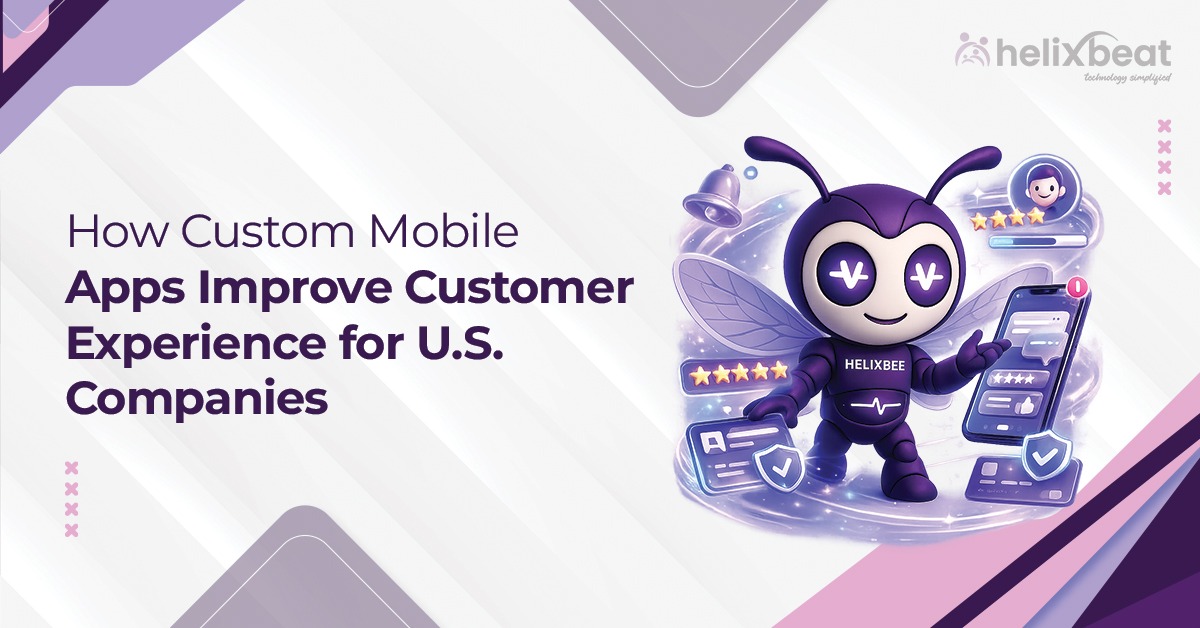Looking for effective ways to grow your hospital’s online presence? Digital marketing for hospitals is an essential strategy for boosting visibility, engaging patients, and driving growth. Whether you’re managing a small clinic or overseeing a large healthcare facility, implementing the right digital marketing strategies can help you attract more patients and establish a strong online reputation. With healthcare becoming increasingly digital, now is the perfect time to invest in tailored marketing services to meet the evolving needs of your patients.
As patients continue to turn to the internet for healthcare information, having a robust digital marketing plan is no longer optional, it’s a necessity. From local SEO for doctors to online reputation management, understanding how to leverage these tools can provide hospitals of all sizes with a competitive edge.
In this blog, we’ll explore how digital marketing for hospitals works across different hospital sizes and why it’s crucial for your success.

Table of Contents
What is Healthcare Digital Marketing?
With the rise of digital tools and platforms, healthcare digital marketing has become an essential part of modern healthcare practices, enabling providers to effectively reach, educate, and support patients while growing their practices.
Search Engine Optimization (SEO)
- SEO involves optimizing your website to rank higher in search engine results pages (SERPs), making it easier for patients to find your services.
- This includes keyword research, on-page SEO (optimizing content, meta tags, and images), and local SEO (optimizing for location-based searches).
- For example, a local dental clinic may optimize for keywords like “dentist near me” to attract patients from their area.
Social Media Marketing
- Social media platforms like Facebook, Instagram, and LinkedIn are powerful tools for connecting with patients, sharing educational content, and building brand awareness.
- Healthcare providers use social media to engage with patients, showcase success stories, share health tips, and provide updates on new services or facilities.
- For instance, a hospital might post testimonials, health tips, and health-related news to engage with followers.
Content Creation
- Content marketing plays a vital role in educating patients and building trust.
- Hospitals and healthcare providers create valuable content such as blog posts, videos, e-books, and infographics to inform patients about medical conditions, treatments, and preventive care.
- For example, a cardiologist’s clinic might write a blog post on managing hypertension or produce a video explaining heart health.
Email Marketing
- Email marketing helps healthcare providers stay connected with patients and nurture relationships over time.
- By sending personalized newsletters, appointment reminders, health tips, and promotional offers, healthcare marketers can ensure that patients stay informed and engaged with their services.
- For example, a fertility clinic could send email reminders about upcoming fertility treatment options or success stories to inspire and motivate patients.
Online Reputation Management
- Managing online reviews and feedback is critical in healthcare marketing.
- Many patients rely on reviews and ratings when choosing a healthcare provider.
- Monitoring platforms like Google Reviews, Yelp, or Healthgrades, and responding to both positive and negative feedback helps healthcare providers maintain a strong and trusted online reputation.
Why Healthcare Companies Need Digital Marketing
Digital marketing for healthcare providers is like a stethoscope for a doctor. Just as a stethoscope helps the doctor understand a patient’s condition and communicate effectively, digital marketing tools enable healthcare providers to gauge patient needs and connect with them in a meaningful way. Both are essential for fostering a healthy relationship, whether it’s diagnosing ailments or attracting and retaining patients.
Patient Acquisition
- With an increasing number of patients turning to the internet to find healthcare services, digital marketing enables hospitals to attract new patients through online ads, targeted SEO strategies, and search engine optimization.
- Ranking higher on search engines helps ensure that your hospital is easily found by potential patients searching for specific medical services.
Brand Reputation
- In the healthcare industry, trust is everything.
- Online reputation management tools enable healthcare providers to monitor and respond to patient reviews across various platforms, including Google and social media.
- Managing your online reputation not only builds trust but also positively influences prospective patients’ decisions. A strong reputation can be the deciding factor in patient acquisition.
Patient Engagement
- Social media platforms and email marketing offer hospitals an effective way to engage with patients beyond their visits.
- By sharing helpful content, providing appointment reminders, and answering patient queries in real time, healthcare providers can create a stronger, ongoing relationship with their patients.
- Engaging with patients consistently helps build loyalty and increases the likelihood of return visits.
Cost-Effective
- Unlike traditional advertising methods, such as print media or TV ads, digital marketing is far more cost-effective, offering measurable results at lower costs.
- With tools like Google Ads and Facebook Ads, healthcare companies can target their audience based on location, interests, and other demographics.
What Are the Types of Digital Marketing?
Here’s a breakdown of some essential types of digital marketing services that healthcare providers should consider:
1. SEO (Search Engine Optimization) and SEM (Search Engine Marketing)
- SEO and SEM are fundamental tools for boosting your hospital’s visibility on search engines like Google.
- HelixBeat will help you dominate search engines, ensuring your hospital ranks high on local searches and increases patient visibility.
- This includes keyword research, on-page optimization, backlinking, and improving website user experience to attract local patients.
- SEM, on the other hand, uses paid advertising (Google Ads) to target patients based on their search queries.
- SEM delivers immediate results and is perfect for driving traffic to your hospital’s website or landing page.
- At HelixBeat, our SEO and SEM strategies ensure prospective patients easily find your hospital’s services.
- We implement effective local SEO for doctors to target patients in your area and enhance your ranking with carefully crafted SEO strategies and paid search campaigns.
2. Social Media Marketing
- Social media platforms like Facebook, Instagram, and LinkedIn are vital for healthcare providers looking to interact with patients, build trust, and promote services.
- Social media marketing for hospitals is an opportunity to:
- Share health tips, patient testimonials, or educational content.
- Engage in conversations with patients by responding to their queries or concerns.
- Run targeted ads to reach potential patients based on demographics, location, and interests.
3. Content Marketing
- Content marketing involves creating and distributing valuable content to attract and engage patients.
- This includes blog posts, articles, videos, infographics, and eBooks.
- By providing insightful and educational content, hospitals can establish themselves as industry leaders and build trust with prospective patients.
- HelixBeat’s Content Marketing services are designed to generate awareness and nurture leads.
- We create patient-focused content that aligns with your hospital’s mission and services, driving organic traffic while educating patients on important healthcare topics.
4. Performance Marketing
- Performance marketing is a results-driven approach where you only pay for the actual performance of your ads, such as clicks, leads, or conversions.
- It’s an efficient way to allocate your advertising budget, as you can track each campaign’s return on investment (ROI).
- HelixBeat excels in Performance Marketing, helping hospitals maximize their marketing spend.
- Through data-driven insights, we create campaigns that target the right audience and focus on achieving measurable results, whether it’s an increase in consultations or brand awareness.
5. Email Campaigns
- Email marketing remains one of the most effective ways to stay in touch with patients.
- By sending newsletters, health tips, appointment reminders, or special offers, you can keep patients engaged with your services and build a loyal patient base.
- With HelixBeat’s Email Campaigns, your hospital can stay top-of-mind with patients.
- We create personalized email campaigns that are relevant to your patients’ needs and preferences, ensuring higher engagement rates and fostering long-term relationships.
6. WhatsApp Marketing
- WhatsApp marketing is gaining traction as a powerful tool for instant communication with patients.
- It allows hospitals to send appointment reminders, updates on new services, and even follow up after visits.
- HelixBeat’s WhatsApp Marketing service helps you reach your patients directly and personally, ensuring that they receive important updates in real-time.
- This service is beneficial for improving patient retention and satisfaction.
The Role of Digital Marketing Strategies in the Success of Small and Medium-Sized Enterprises (SMEs)
Digital marketing strategies help these businesses thrive by addressing several key challenges they face in an increasingly competitive healthcare market. Here’s how:
1. Improved Visibility
- Small and medium-sized hospitals often face the challenge of competing with larger healthcare facilities that have more established reputations and budgets.
- However, with the right digital marketing strategies, such as local SEO for doctors, these hospitals can significantly enhance their visibility within their local communities.
- By optimizing their websites and content for local search terms, hospitals can ensure that when patients search for healthcare services nearby, their hospital is prominently featured.
- This approach directly increases the likelihood of attracting patients who are looking for convenient and accessible care in their area.
2. Brand Awareness
- In the crowded healthcare space, building brand recognition is essential for growth.
- Digital marketing enables hospitals to effectively engage with their target audience through social media, blogs, and paid ads.
- Consistent and informative posts on platforms like Facebook, Instagram, and LinkedIn help hospitals stay top-of-mind with patients.
- By sharing valuable content such as health tips, patient success stories, and information about services, hospitals can build trust and establish themselves as a go-to healthcare provider in their community.
- Additionally, paid ads can be strategically used to reach a wider audience and enhance brand exposure.
3. Patient Retention
- One of the challenges faced by small and medium-sized hospitals is not just attracting new patients but retaining them.
- Digital marketing strategies like email campaigns and content marketing are vital for keeping patients informed and engaged.
- Regular newsletters, reminders for checkups, and follow-up emails can help maintain communication with patients even after their initial visits.
- Furthermore, content marketing, such as blog posts or videos about treatments, health advice, and hospital updates, provides valuable information that encourages patients to stay engaged with the hospital and return for future services.
- This ongoing communication fosters trust and loyalty, which is crucial for patient retention.
Key Trends in Healthcare Digital Marketing
The following trends have shaped the healthcare digital marketing landscape:
- Telemedicine: The rise of virtual consultations and online patient engagement.
- Voice Search: More patients are searching for healthcare services using voice-activated devices.
- AI and Chatbots: Automation tools provide instant support to patients, enhancing the user experience.
- Online Reputation Management: With platforms like Google Reviews, hospitals are more conscious of their online image.
Our 9-Step Guide to Healthcare Digital Marketing Strategy
Building a strong healthcare digital marketing strategy can seem overwhelming but breaking it down into nine clear steps can make the process manageable and effective. Here’s a detailed look at each step:
Define Goals
- Start by identifying what you want to achieve with your digital marketing efforts.
- Are you looking to increase patient appointments, boost brand recognition, or improve engagement with existing patients? Clear goals provide a roadmap for all your marketing activities and help measure success.
- For example, a small clinic may focus on increasing local patient visits, while a large hospital may aim to enhance its online authority and patient trust.
Know Your Audience
- Understanding your patients is key. Identify your target demographic based on factors like age, location, medical needs, and online behavior.
- This step allows you to tailor your messaging and choose the right channels.
- For instance, younger patients might respond better to social media campaigns, while older patients may prefer email communications or informative blogs.
Optimize Your Website
- Your hospital website is often the first point of contact for patients. Make sure it’s user-friendly, mobile-responsive, and optimized for search engines (SEO).
- Include easy navigation, clear calls-to-action, online appointment scheduling, and educational content to provide value and build trust.
- A well-optimized website not only improves visibility but also enhances the patient’s experience.
Use Paid Advertising
- Paid advertising, such as Google Ads and social media ads, can target specific patient groups based on location, age, interests, or medical needs.
- For example, a cardiology department can run ads targeting patients searching for heart health services in your city.
- Paid campaigns help generate immediate traffic and complement your organic marketing efforts.
Leverage Social Media
- Engage with patients and the community through platforms like Facebook, Instagram, and LinkedIn.
- Share educational content, success stories, health tips, and updates about hospital services.
- Social media allows hospitals to humanize their brand, build relationships with patients, and improve patient loyalty.
Create Valuable Content
- Content marketing is a powerful way to educate patients and position your hospital as a trusted authority.
- Post blogs, infographics, videos, and patient guides addressing common health concerns.
- For example, a pediatric clinic could create videos on childhood vaccination schedules, while a large hospital might publish research-backed articles on advanced treatment options.
Use Email Marketing
- Email campaigns help maintain communication with patients and keep them informed about appointments, health tips, and hospital updates.
- Personalized emails, such as reminders for check-ups or follow-ups, can improve patient engagement and loyalty.
Manage Your Reputation
- Online reviews and patient feedback are critical to building trust. Monitor review platforms like Google, Practo, and social media channels.
- Respond promptly to feedback, address concerns, and highlight positive experiences.
- Effective online reputation management enhances credibility and can influence patient decisions.
Measure and Analyze
- Track your digital marketing performance using analytics tools.
- Monitor website traffic, ad campaign performance, social media engagement, and email open rates.
- Data-driven insights help identify what’s working, what needs improvement, and how to allocate your marketing resources efficiently.
Start Your Free Demo → Discover how HelixBeat can create a customized healthcare digital marketing strategy for your hospital and help you achieve measurable results.
Wrapping Up
Digital marketing for hospitals is an essential tool for growth, patient engagement, and maintaining a strong online presence. By employing strategies like local SEO for doctors, online reputation management, and targeted digital marketing services, hospitals of all sizes can thrive in the digital age. Whether you are a small clinic or an extensive healthcare system, understanding and implementing the right digital marketing strategies is crucial.
Sign up today → To learn more about HelixBeat’s digital marketing for hospitals solutions and how they can help your hospital grow.
FAQs
- What is Healthcare Digital Marketing?
Healthcare digital marketing is the use of online platforms and strategies to promote healthcare services, engage with patients, and improve overall patient care.
- Why is Digital Marketing Important for Small Hospitals?
It helps small hospitals attract local patients, improve their online reputation, and engage with their community.
- How Does Digital Marketing Differ for Hospitals?
Healthcare marketing must adhere to strict regulations like HIPAA and focus on patient care and trust.
- What Are the 4 Types of Digital Marketing?
The four types are SEO, PPC, social media marketing, and email marketing.
- How Can Hospitals Benefit from Online Reputation Management?
It allows hospitals to monitor and respond to patient reviews, ensuring a positive online image.
- What Are the 5 P’s of Healthcare Marketing?
Product, Price, Place, Promotion, and People.
- What Is Local SEO for Doctors?
It’s the practice of optimizing a doctor’s website for local search queries, helping them reach patients in their area.
- What Is the Role of Digital Marketing Strategies in SMEs?
They help small and medium-sized hospitals compete with larger organizations by increasing visibility and patient engagement.
- Why Healthcare Companies Need Digital Marketing?
To stay competitive, improve patient engagement, and establish a trustworthy online presence.
- What Are the Key Trends in Healthcare Digital Marketing?
Trends include telemedicine, voice search, AI tools, and reputation management.
- What Is the Importance of SEO for Hospitals?
SEO helps hospitals rank higher on search engines, making it easier for patients to find them online.
- Why Should Hospitals Invest in a Medical Marketing Agency?
Medical marketing agencies specialize in healthcare marketing and can create effective, compliant strategies tailored to hospital needs.














